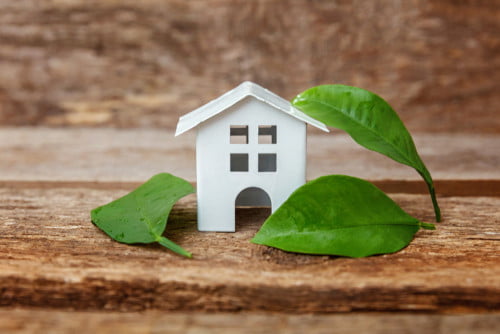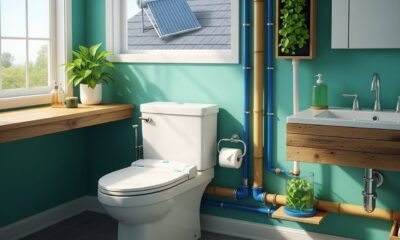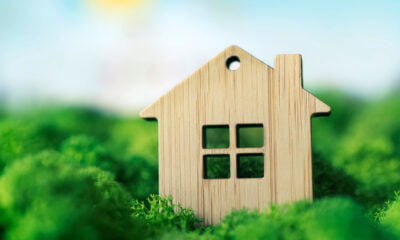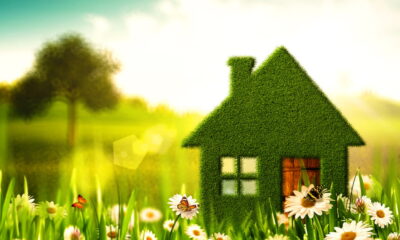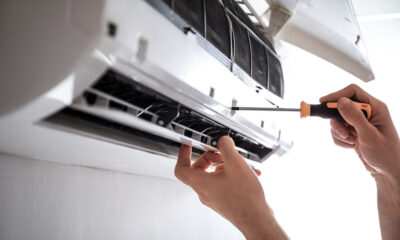Are you committed to living a more sustainable lifestyle? As the old saying goes, your efforts should begin at home.
A growing number of buildings are being designed with environmental sustainability in mind. One report shows that 121,400 homes are LEED certified. These homes use up to 30% less energy and water, which means that they are highly beneficial for the environment.
If you are serious about helping the planet, then you should make sure your own home is designed to be eco-friendly as well.
Sustainability Should Be the Focus of All Homeowners – But What Steps Should They Take?
We’re passionate about sustainable living. Going green and using renewable energy are some of our favorite topics these days. So, designing an eco-friendly home is a natural solution to continuing to protect our planet.
If you’re thinking about the steps that you can take to reduce your carbon footprint and have the opportunity to design your own dream home, then you should follow these four tips on how to do it while taking care of the environment.
1. Bigger Isn’t Always Better
One of the reasons the tiny house movement has taken off is that smaller homes are better for the environment. One study of 80 tiny homes found they used 45% less energy.
The smaller your house is, the less of an impact it will have on the environment. When beginning the design of your house, consider how the final product can remain practical but also affordable.
The bigger the house, the more floor and wall space to clean. It also means more energy is used for cooling and heating. Saving space not only saves money but also uses less energy. You should look for a house that’s just big enough for your needs and that will allow you to live simply.
2. Look to the Sun
Solar heating is very good for the environment. You should keep this in mind when designing your own home.
Before you begin your design, find a location that gets sunlight and strategically position the house to maximize the use of the sun. By maximizing sun exposure, you’ll be using this powerful natural resource to your advantage. While an initial expense, solar panels are hugely beneficial in the long run as they will reduce your overall energy consumption.
The added benefit for investment is the tax credit for installing a solar energy system. This applies for home installations and up to 26% of the installation costs can be deducted from your federal taxes.
Make sure your residential plans also budget for eco-friendly lighting and energy efficient equipment. Again, this is an upfront expense but with long term savings both electrically and financially. Bonus: it will function as effectively as—if not better than—other appliances and fittings.
3. Save Water with Tanks and other Features
Don’t let rainwater go to waste! A rainwater harvesting system can gather rainwater from your roof and keep it in a tank. This is an easy way to source water for gardening or your toilet systems.
When looking at the finer details, install low flow faucets and showerheads as well as a dual flush toilet to save as much water as possible while you enjoy your new home.
4. Select Sustainable Building Supplies
From the floor to the roof and interior finishes, sustainable building supplies are your solution. Pick eco or environmentally friendly building products made of natural and renewable materials that will all decrease the effect of the house’s construction on your natural surroundings.
Did you know block work, brick and sustainably sourced timber are all eco-friendly options? Go for thick materials that attract and collect heat during daylight to maintain a pleasant indoor temperature at night. Use flooring such as polished concrete that adds warmth to an interior.
Recycled newspaper, wood or sheep’s wool are excellent environmentally friendly insulating products. They have the added bonus of being biodegradable, reusable and recyclable. Correct insulation will enable sufficient heating and cooling without any air leaks and will noticeably reduce your electricity bills.
Make Your Home More Environmentally Friendly to Protect the Planet
By being mindful of how your home’s designed, you’ll enjoy living in it even more, with lasting benefits for years to come. You can rest assured knowing that present and future generations can continue the legacy that you’ve started: taking care of the earth one eco-friendly house at a time.


 Environment12 months ago
Environment12 months agoAre Polymer Banknotes: an Eco-Friendly Trend or a Groundswell?

 Features11 months ago
Features11 months agoEco-Friendly Cryptocurrencies: Sustainable Investment Choices

 Features12 months ago
Features12 months agoEco-Friendly Crypto Traders Must Find the Right Exchange

 Energy11 months ago
Energy11 months agoThe Growing Role of Solar Panels in Ireland’s Energy Future
